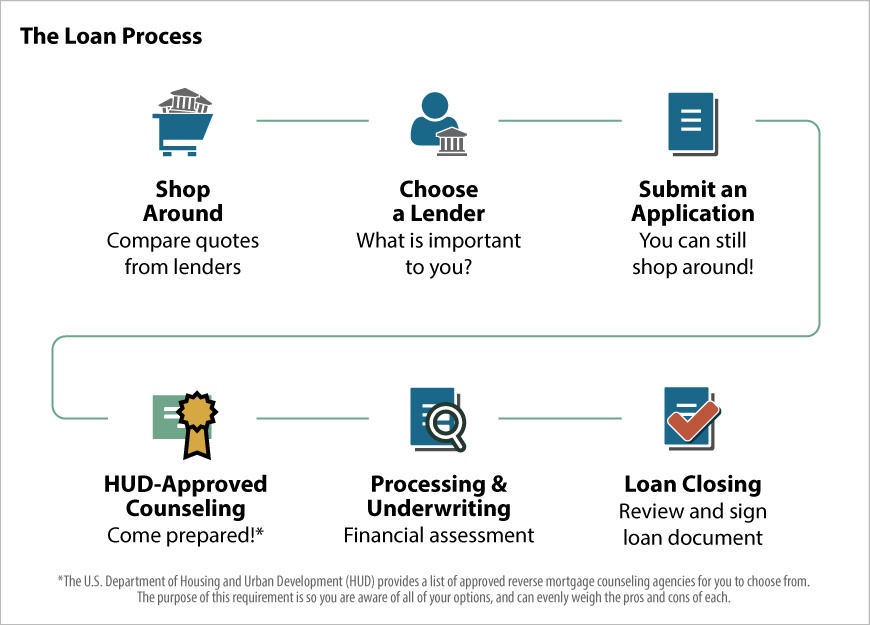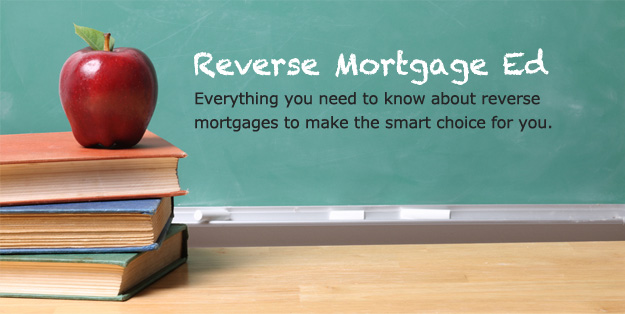Unlock Financial Flexibility: Your Overview to Purchasing a Reverse Home Loan
Comprehending the ins and outs of reverse home mortgages is crucial for home owners aged 62 and older looking for economic liberty. As you consider this alternative, it is vital to comprehend not only how it works yet additionally the effects it might have on your monetary future.
What Is a Reverse Home Loan?

The fundamental allure of a reverse home mortgage hinges on its possible to enhance monetary adaptability during retirement. House owners can use the funds for different objectives, consisting of medical expenses, home enhancements, or daily living expenses, hence providing a safeguard throughout an important phase of life.
It is vital to recognize that while a reverse home mortgage permits enhanced money circulation, it additionally lowers the equity in the home over time. As interest builds up on the superior loan balance, it is important for possible debtors to very carefully consider their long-lasting financial strategies. Consulting with an economic expert or a reverse mortgage specialist can provide valuable insights into whether this option straightens with a person's economic objectives and conditions.
Qualification Demands
Comprehending the eligibility requirements for a reverse mortgage is vital for property owners considering this financial option. To certify, candidates should be at least 62 years of ages, as this age standard enables seniors to access home equity without month-to-month home mortgage repayments. Additionally, the homeowner has to inhabit the home as their primary residence, which can consist of single-family homes, certain condos, and produced homes satisfying specific standards.
Equity in the home is one more essential need; house owners typically need to have a substantial amount of equity, which can be determined with an appraisal. The amount of equity readily available will directly affect the reverse home loan quantity. Moreover, applicants need to demonstrate the capacity to maintain the home, including covering real estate tax, homeowners insurance policy, and maintenance prices, guaranteeing the building stays in excellent condition.
Additionally, prospective debtors must undertake a financial evaluation to examine their revenue, credit score background, and overall financial circumstance. This assessment aids lenders identify the applicant's capability to fulfill recurring obligations connected to the home. Satisfying these needs is critical for securing a reverse mortgage and guaranteeing a smooth monetary shift.
Benefits of Reverse Home Loans
Various benefits make reverse home loans an attractive choice for senior citizens wanting to improve their monetary flexibility. purchase reverse mortgage. One of the primary advantages is the capacity to transform home equity right into money without the requirement for regular monthly home loan payments. This feature allows elders to accessibility funds for different requirements, such as medical expenses, home renovations, or daily living prices, consequently reducing financial stress
In addition, reverse home mortgages supply a security net; seniors can remain to reside in their homes for as long as they fulfill the financing demands, promoting security throughout retirement. The profits from a reverse home loan can also be made use of to delay Social Security advantages, potentially causing higher payments later.
Moreover, reverse home loans are non-recourse financings, meaning that debtors will certainly never owe even more than the home's worth at the time of sale, protecting them and their successors from monetary responsibility. Finally, the funds received from a reverse home loan are generally tax-free, including another layer of monetary relief. Generally, these advantages setting reverse home mortgages as a useful option for seniors seeking to boost their financial circumstance while keeping their cherished home atmosphere.

Charges and expenses Entailed
When considering a reverse mortgage, it's necessary to understand the numerous prices and fees that can impact the overall financial picture. Comprehending these costs is vital for making an educated choice concerning whether this economic item is appropriate for you.
Among the key prices linked with a reverse home mortgage is the source cost, which can differ by lending institution yet usually varies from 0.5% to 2% of the home's assessed worth. Furthermore, house owners ought to expect closing costs, which may consist of title insurance policy, assessment costs, and debt record fees, usually amounting to several thousand bucks.
An additional considerable cost is mortgage insurance policy costs (MIP), which secure the loan provider against losses. This cost is normally 2% of the home's value at closing, with an ongoing yearly premium of 0.5% of the remaining loan equilibrium.
Finally, it is very this website important to think about ongoing prices, such as residential property taxes, homeowner's insurance policy, and maintenance, as the borrower stays responsible for these expenditures. By very carefully evaluating these costs and expenses, homeowners can much better assess the monetary implications of going after a reverse mortgage.
Actions to Get Going
Beginning with a reverse mortgage includes several essential actions that can aid improve the procedure and guarantee you make informed decisions. Assess your monetary circumstance and establish if a reverse mortgage aligns with your long-lasting objectives. This includes examining your home equity, existing financial debts, and the necessity for additional earnings.
Next, research study numerous lending institutions and their offerings. Look for trusted organizations with favorable reviews, transparent charge structures, and competitive rates of interest. It's necessary to contrast problems and terms to discover the most effective here are the findings suitable for your demands.
After picking a lending institution, you'll require to finish an in-depth application process, which usually needs try this site paperwork of earnings, assets, and home details. Take part in a therapy session with a HUD-approved therapist, that will offer insights right into the effects and obligations of a reverse home loan.
Conclusion
In conclusion, reverse home mortgages offer a feasible option for seniors looking for to improve their financial stability throughout retired life. By transforming home equity into available funds, homeowners aged 62 and older can resolve numerous monetary demands without the pressure of monthly settlements. Comprehending the intricacies of qualification, benefits, and linked expenses is important for making informed choices. Careful factor to consider and planning can bring about enhanced quality of life, making certain that retirement years are both secure and satisfying.
Recognizing the intricacies of reverse home loans is crucial for property owners aged 62 and older looking for financial freedom.A reverse home loan is an economic product created largely for homeowners aged 62 and older, enabling them to transform a section of their home equity into money - purchase reverse mortgage. Consulting with a reverse mortgage or an economic consultant professional can provide important insights right into whether this alternative straightens with a person's financial goals and situations
Moreover, reverse home mortgages are non-recourse loans, implying that customers will never owe more than the home's value at the time of sale, securing them and their heirs from economic responsibility. In general, these benefits setting reverse home loans as a useful service for senior citizens seeking to enhance their financial situation while maintaining their cherished home environment.
Comments on “Why You Should Purchase Reverse Mortgage to Secure Your Future”